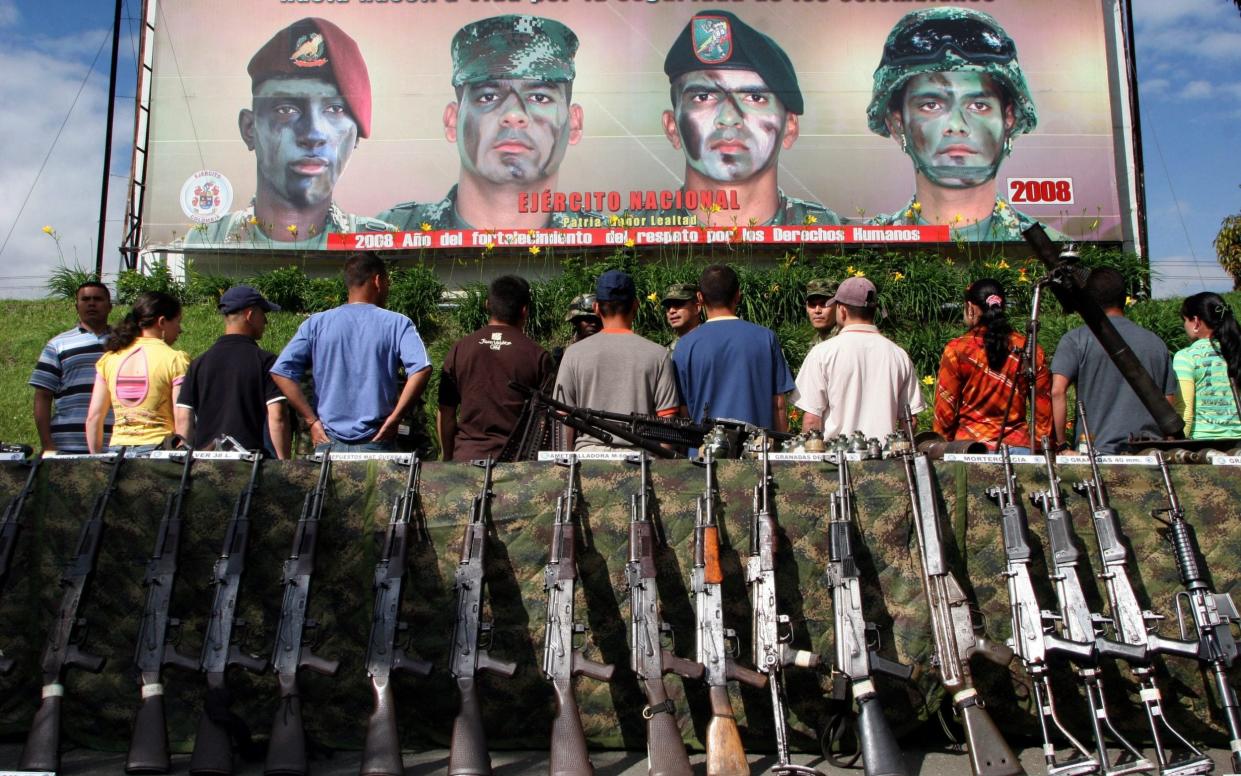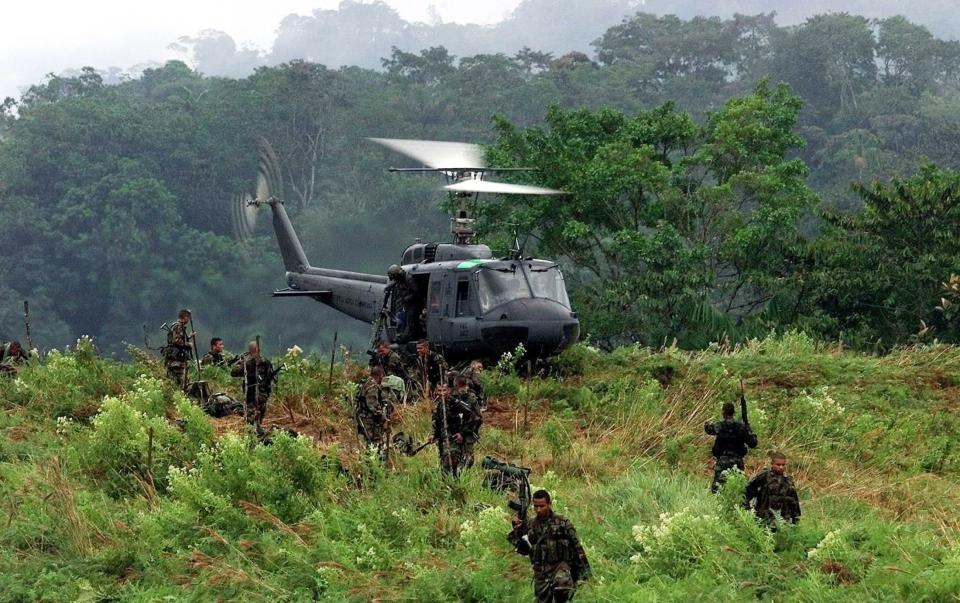Colombian army under investigation for 'executing children during Farc raid'

The Colombian army has been accused of killing children forcibly conscripted by the FARC guerilla group in an operation previously hailed as a major success.
Court documents leaked exclusively to the Telegraph conclude the military likely committed war crimes during Operation Berlin, an assault targeting the rebel group in November 2000.
The children were in desperate condition, with one begging: “Kill me, but give me some food first.”
The documents from Colombia’s Special Jurisdiction for Peace, created to investigate the atrocities of the country’s civil war, show evidence of extrajudicial killings and allege that soldiers murdered unarmed children and teenagers in cold blood.
The army’s target was the Arturo Ruíz mobile column of the guerrilla, which was made up of more than a hundred young fighters. The insurgents had marched for five months and five hundred miles before they were intercepted by the Colombian Army.
According to Colombia’s Forensic Medicine service 78 rebels were killed during Operation Berlin, 28 of them children. The military campaign ran from 19 November 2000 to 5 January 2001 and revealed the extent to which children were being recruited by the FARC insurgents.
Several army generals were awarded honours by the president for their work in the operation and more than 2,000 soldiers were decorated.
The young insurgents, many of whom had been forcibly recruited from their homes just months earlier, were starving and had no choice. Their inexperience in battle was no match for the might of the armed forces.
One survivor recalls in the documents how he heard the command “to not leave any of the sons of bitches alive.” Another survivor told The Sunday Telegraph that she witnessed the army shooting her friends.
“I remember how they killed at least four minors, who were helpless,” she said. “When they were going to kill me, the officer arrived and chastised his soldiers for having killed the others.”
One girl was shot in the leg during the offensive. Her testimony recounts a terrifying ordeal.
“The pain was so bad I wanted to find a stone I could bash my head with and kill myself,” it reads.
When the soldiers approached, she covered herself in blood and played dead. They threw her in a pile of corpses.
“I could see the bodies of my friends around me. All with their heads blown off.”
Post-mortem reports, also seen by the Sunday Telegraph, show evidence of close-range gunshot wounds and fatal cranial trauma. They reveal how some of the victims were killed from behind, while lying on the floor.
Renee Willmon is a forensic anthropologist and cold case investigator in Toronto, Canada. She says that based on the nature of the injuries shown in the post-mortem reports, it is unlikely that the victims died as a result of combat, as claimed by the Colombian army.
“Fatal injuries sustained in battle are more likely to involve multiple areas of the body than observed in these reports,” she said. “In cases where directionality of firearm injuries to the head can be assessed from the images, the relative position of deceased and shooter appears inconsistent with a face to face, or position with both individuals standing, based on the pattern and location of entrance and exit wounds.”

The Arturo Ruíz mobile column had been formed just a few months before Operation Berlin began.
It contained 361 rebels, 141 of which were children. In 2010, seven FARC commanders were convicted in absentia of having forcibly recruited children for the mobile column. Twenty-seven of the victims were under 15 years old, according to data from FARC and handed to the Telegraph.
The court documents assert that if the armed forces knew of this before they launched the attack, something the military has always denied, then this could also constitute a war crime.
An army intelligence report, dated a month before the offensive began and obtained by The Sunday Telegraph, states “In the Arturo Ruíz mobile column, there are approximately 150 minors between 14 and 17-years-old,” clearly contradicting the military’s position that they only found out about the young rebels when they engaged them in battle.
The court documents conclude the generals involved in the offensive should now be called to give evidence. Campaigners have welcomed this news, but are too scared to go on record for fear of reprisals by the military and their supporters.

